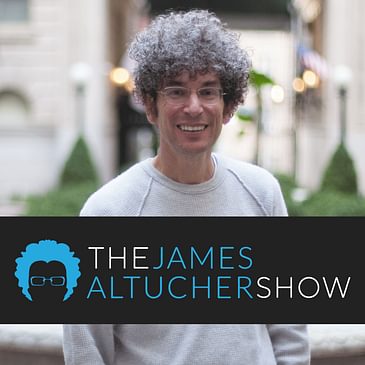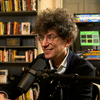A Note from James:
Cal Newport has written such great books about how to be more productive, more creative, the titles of the books speak for themselves: 'So Good They Can't Ignore You', 'Deep Work', and this latest one is called 'Slow Productivity'. It's about how you ultimately succeed in getting more productive by going slower and sometimes doing nothing. Cal tells us how and why and we always have an interesting conversation. So here is Cal Newport!
Episode Description:
This episode explores the nuanced concept of 'Slow Productivity,' as championed by Cal Newport, across an engaging dialogue that sheds light on achieving more by intentionally slowing down. Newport, making his fifth appearance on the podcast, underscores the counterintuitive productivity philosophy through his journey, inspirations from his books like 'Digital Minimalism,' and the pivotal role of mindful work habits. Referencing historical and contemporary figures like Benjamin Franklin and John Grisham, Newport articulates the significance of deliberate practice, the fallacy of equating busyness with productivity, and the benefits of focused work. Additionally, the interview captures a personal milestone of applying for full professorship, emphasizing the importance of scholarly impact and steady progress. Through a blend of personal anecdotes, historical wisdom, and critique of modern work culture's inefficiencies, the discussion advocates for a transformative approach to work and creativity that values depth, reflection, and the strategic delegation of tasks.
Episode Summary:
00:00 Introduction to Cal Newport and His Work
02:30 Cal's Journey as an Author and His Writing Process
04:09 The Importance of Stories Over Studies in Books
07:42 The Role of Workload in Productivity
14:22 The Impact of Technology on Productivity
14:52 The Shift to Remote and Hybrid Work
20:30 The Importance of Structuring Your Day
25:28 The Balance Between Hustle and Slow Productivity
30:59 The Misconceptions of Young People About Work
31:06 Balancing Grad School and Writing Books
31:13 The Importance of Time Management
32:03 The Reality of Workload and Social Interactions
32:37 The Mythology of Speed in Work
34:36 The Paradox of the Relaxed Rhodes Scholar
35:12 The Role of Time in Productivity
36:40 The Importance of Quality Over Quantity
38:26 The Impact of Pseudo Productivity
54:11 The Role of AI in Writing and Academia
01:00:03 The Journey to Tenure and Beyond
------------
- What do YOU think of the show? Head to JamesAltucherShow.com/listeners and fill out a short survey that will help us better tailor the podcast to our audience!
- Are you interested in getting direct answers from James about your question on a podcast? Go to JamesAltucherShow.com/AskAltucher and send in your questions to be answered on the air!
------------
- Visit Notepd.com to read our idea lists & sign up to create your own!
- My new book, Skip the Line, is out! Make sure you get a copy wherever books are sold!
- Join the You Should Run for President 2.0 Facebook Group, where we discuss why you should run for President.
- I write about all my podcasts! Check out the full post and learn what I learned at jamesaltuchershow.com
------------
Thank you so much for listening! If you like this episode, please rate, review, and subscribe to “The James Altucher Show” wherever you get your podcasts:
Follow me on social media:




